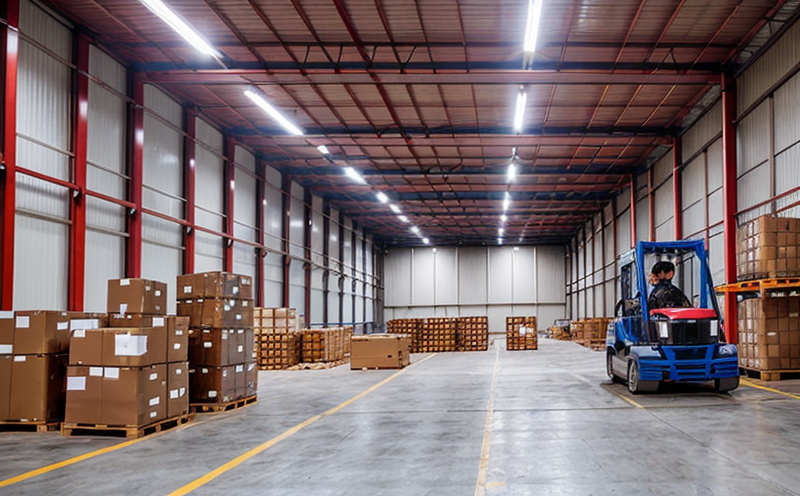ISO 2885 Packaging Tear Resistance Testing
The ISO 2885 standard specifies methods for determining the tear resistance of packaging materials. This is a critical test for ensuring that packaging can withstand the stresses encountered during manufacturing, handling, and distribution without compromising its integrity.
During testing, samples are subjected to controlled tearing forces perpendicular to their plane using a specialized tensile tester. The force required to cause tears in the material under specified conditions determines tear resistance. This test is essential for industries dealing with flexible packaging materials such as films, laminates, and multi-material combinations.
The ISO 2885 testing process involves several stages:
- Sample Preparation: Samples are cut to standard dimensions ensuring they represent typical packaging configurations. Pre-conditioning may be required depending on the material.
- Tear Initiation: The test begins with the application of a pre-load to initiate tearing at predetermined points along the sample.
- Force Application: Tearing forces are applied gradually, and the force needed to cause tears is recorded. This data helps in quantifying tear resistance.
The results from these tests provide valuable insights into the durability of packaging materials under various conditions. For instance, they help identify potential weaknesses that could lead to premature failure during logistics or storage.
Understanding and implementing ISO 2885 testing is crucial for maintaining high standards in industrial manufacturing processes. It ensures that products are not only safe but also meet the necessary quality assurance benchmarks set by international standards.
In industries such as pharmaceuticals, food & beverage, and consumer goods, packaging integrity directly impacts product safety and brand reputation. By adhering to ISO 2885 guidelines, manufacturers can ensure their packaging meets stringent global regulations and customer expectations.
For quality managers and compliance officers, this test offers a reliable method for assessing material performance. R&D engineers benefit from detailed insights into the mechanical properties of materials used in innovative packaging designs. Procurement teams can use these results to select suppliers who consistently deliver high-quality raw materials.
Benefits
The ISO 2885 testing process offers several advantages:
- Enhanced Durability: By identifying weak points in packaging materials, this test helps manufacturers improve the overall durability and lifespan of their products.
- Cost Efficiency: Early detection of potential issues can prevent costly rework or product recalls later in the supply chain.
- Regulatory Compliance: Adhering to international standards ensures that packaging meets all necessary regulatory requirements, streamlining compliance processes.
- Better Product Quality: Consistent quality is maintained across production batches, leading to higher customer satisfaction and loyalty.
- Innovation Support: Detailed test results can guide R&D teams in developing more robust packaging solutions tailored to specific product needs.
Eurolab Advantages
EuroLab is committed to delivering accurate, reliable, and consistent testing services that meet the highest international standards. Our team of experts ensures that every test conducted adheres strictly to ISO 2885 guidelines.
- Expertise: Trained professionals with extensive experience in packaging material testing ensure precise and accurate results.
- State-of-the-Art Equipment: We employ advanced testing machines capable of replicating real-world conditions, providing reliable data for decision-making.
- Comprehensive Reporting: Detailed reports are generated after each test, offering actionable insights into material performance and areas for improvement.
- Custom Solutions: EuroLab offers tailored testing services that address specific client needs, whether it’s a one-time test or ongoing quality assurance programs.
International Acceptance and Recognition
The ISO 2885 standard has gained widespread acceptance across numerous countries due to its robustness and reliability. It is recognized by regulatory bodies worldwide, ensuring that tests conducted according to this standard are universally accepted.
Countries like the United States, Canada, Australia, and various members of the European Union have incorporated ISO 2885 into their national standards. This recognition facilitates smoother international trade and harmonizes testing protocols across borders.
By leveraging internationally recognized standards, EuroLab ensures that its services are highly valued in both domestic and export markets. This global acceptance also underscores the importance of adhering to such rigorous testing procedures for maintaining competitive advantage in today’s globalized economy.





